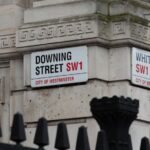Many property buyers abroad are shocked to discover that the price they thought they were agreeing to pay can be very different to the one they eventually have to stump up for. Why? Because between agreeing a price in euros or dollars and actually paying, the exchange rate can change by several percentage points.
The good news is, there’s an easy way to protect yourself, and your peace of mind!
From COVID-19 news to announcements from central banks, the pound and other currencies continue to react to economic and political events.
It’s impossible to predict when and where the markets will move. However, we can pinpoint factors that could have an impact on currencies, and therefore the price of your property. Here are some key events to watch out for.
Get a quote from us today by completing our simple form. We’ll take a look at your requirements and arrange to speak to you at a suitable time to offer the best possible solution for all of your upcoming currency transfers.
Back to normal on July 19?
On his first day as Health Secretary, Sajid Javid confirmed that July 19 will mark the end of lockdown restrictions. Prime Minister Boris Johnson also said that it’s “very likely” that restrictions can be eased on this date and people in England will be able to return to “pretty much life before Covid.”
If the government do a U-turn on this decision, then the pound could be impacted. Cases of the Delta variant continue to rise and if hospitalisations and deaths also increase significantly, then it’s possible that another delay could be imposed. As it stands, the government seem confident that the NHS will be able to cope with the effects of reopening on July 19.
Economic data
As life in the UK reopens, investors will be looking for signs of economic recovery. Data releases will continue to be watched closely for an indication of how the economy is performing. Any data that misses or exceeds expectations could have an impact on currencies. This data could also provide clues about the Bank of England’s future stance on monetary policy.
The markets will focus on PMI figures, which measure the health of the services and manufacturing industries, as well as inflation rate data.
Bank of England meeting
The last Bank of England meeting in June disappointed the markets and the pound weakened slightly as a result. The BoE lifted its inflation forecast but voted unanimously to keep interest rates the same and most officials voted to maintain asset purchases at the current level. This ‘dovish’ action disappointed investors who were hoping to see more decisive conclusions from the meeting.
The next meeting will take place on August 5. Any indication that interest rates will be raised, or monetary policy will be changed in the near future could have a positive impact on the pound. Equally, any ‘dovish’ comments or a reiteration of the Bank’s current ‘wait and see’ approach could have the opposite effect.
Travel restrictions
News around travel is currently unpredictable, at best. Recent measures imposed by Spain, Portugal and Malta on British travelers who haven’t been fully vaccinated caused shares in British travel companies to fall by 3 to 5%, dragging the pound down with them.
The Delta variant is now becoming more prevalent in Europe, which could mean that more countries impose similar restrictions. This could have an impact on both the pound and the euro. As many European countries rely heavily on tourism, an increase in restrictions over the summer may be devastating for their economies.
The Federal Reserve and the European Central Bank
The EUR/USD currency pairing could be heavily influenced by the actions of these two central banks over the coming weeks and months. Currently, the dollar is being supported by the supposition that the US Federal Reserve will be tapering post-pandemic support for the US economy more rapidly than the ECB will be doing for the Eurozone.
The ECB looks set to only raise interest rates in 2024 – this slower action from the ECB could also mean that the pound is well supported against the euro going forward.
The Federal Reserve and the Bank of England are expected to act broadly the same when tapering monetary policy. However, if the Fed are quicker to act than the BoE, the pound could weaken against the dollar. In its recent June meeting, the Fed shifted its expectations, saying that an interest rate rise is now likely in 2023, rather than 2024 as previously stated.
Your next steps
Considering these factors and the unpredictable nature of the currency markets, make sure that your money is protected. Act now by locking in the current rate for up to 12 months with a forward contract. This will ensure that your payments, transfers and property-buying budget are protected from currency fluctuations.





















